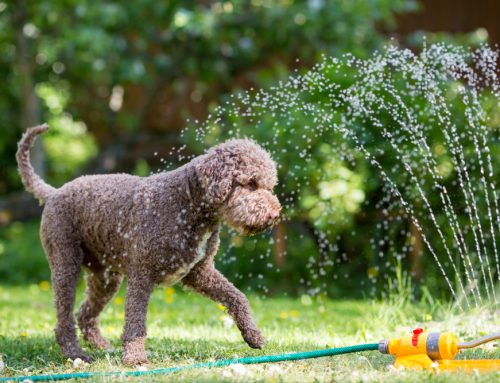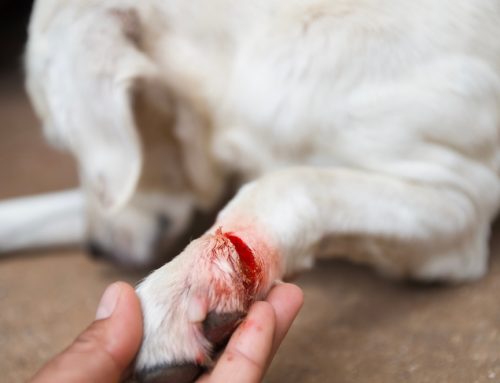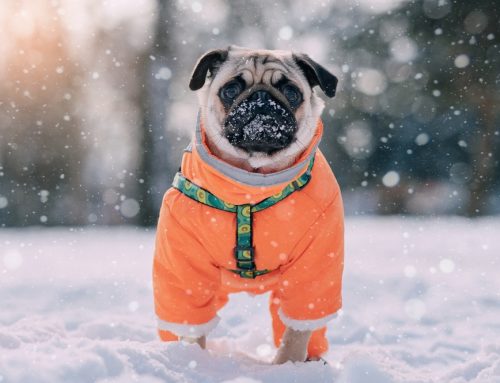Stressful situations clearly benefit from a practiced, organized plan. Hospitals practice codes for declining patients, schools practice fire drills, and families practice evacuation routes in case of a disaster. Your pet relies on you to keep her safe and secure, so be sure to include your furry companion in your emergency plan. Check off these key points to ensure your whole family is fully prepared:
Update your pet’s vaccinations
Life gets hectic, and a trip to the vet may fall to the wayside, leaving your pet overdue for her yearly examination and vaccinations. Stay on top of routine care, not only to keep your pet in peak health, but also to be prepared for emergency travel or boarding situations. At your pet’s annual examination, we not only update her vaccinations, but we also catch disease processes in the early stages before they significantly impact her health and well-being. Routine veterinary care helps keep your pet in tip-top shape, which will benefit her in times of stress or when veterinary care may not be easily accessible, such as an emergency evacuation.
Keep your pet’s medical history and vaccination records up-to-date
Important documents are critical in a disaster plan. Be sure to have either digital or paper copies of your pet’s current medical history and vaccination records accessible, preferably in a waterproof container, in case you need to evacuate or relocate. Boarding facilities often require proof of current vaccinations, and your pet’s medical records, including her medications, will be helpful if she needs veterinary care during a disaster. Also include a current color photograph of you and your pet in your records to help identify and claim your pet if you are separated.
Stock at least a five-day supply of food, water, and medications for your pet
Ideally, a five-day stockpile of supplies should get you and your pet to safety. Be sure to include food and water dishes, elimination supplies such as waste bags, litter, disposable boxes, and cleaning materials in case of accidents. Change the food and water every three months to ensure freshness, and check medications routinely to ensure they have not expired.
Ensure your pet has comfortable housing
While your cat may be unusual and enjoy car rides, stressful situations are an entirely different scenario. Be sure your pet’s crate or carrier is large enough for her to stand up and lie down comfortably, and check for appropriate ventilation. Label the crate or carrier with your name, your pet’s name, and your phone number, in case you are separated. Pack a spare leash and collar in case one breaks.
Provide your pet with calming items
A stressed, anxious pet may benefit from calming supplements or medication, such as chews, treats, pheromones, or pharmaceutical products. All pets enjoy the comfort of familiar items, so pack your pet’s favorite bed, toy, blanket, or stuffed animal to help relieve her anxiety. Long-lasting treats, chews, or food puzzles help stave off boredom and will take your pet’s mind off the frightening situation.

Plan an evacuation route for you and your pet
Plan ahead for an evacuation, choosing a route that has pet-friendly lodging or boarding facilities. Search for hotels, animal shelters, boarding facilities, campgrounds, and veterinary clinics that can offer aid during a disaster. Check out this list of more than 200,000 places that welcome pets to develop the optimal route for your pet’s evacuation.
Do you need refills on your pet’s medication or copies of her medical history for your emergency preparations? Give us a call and we will be happy to help.








Leave A Comment